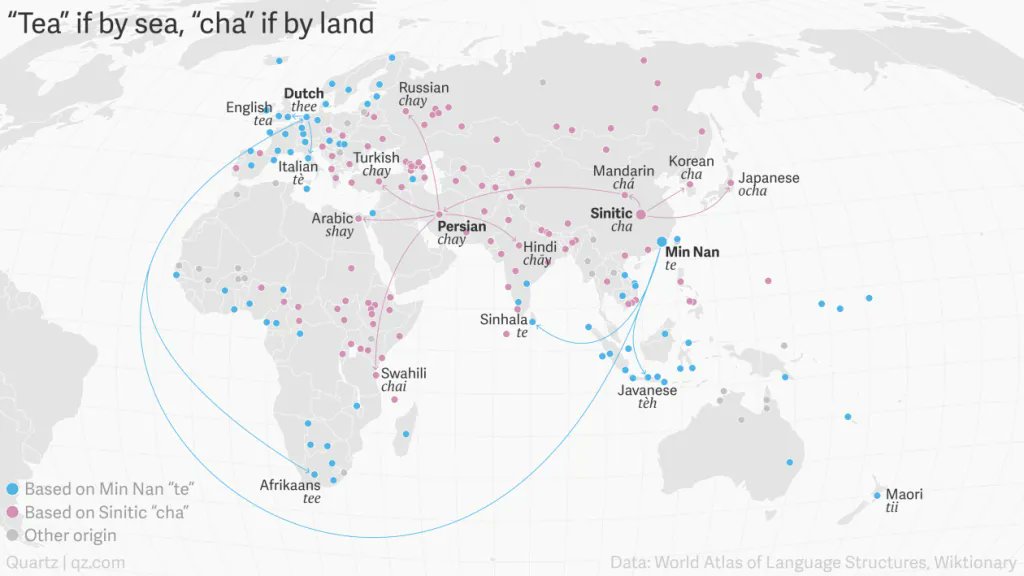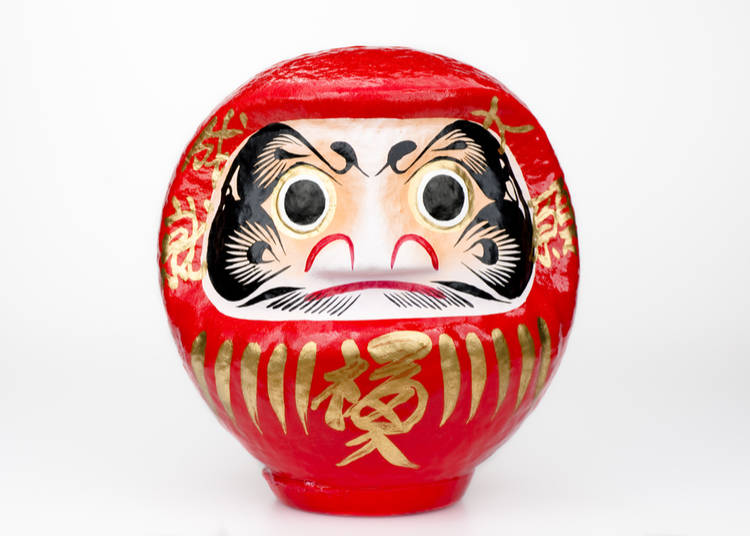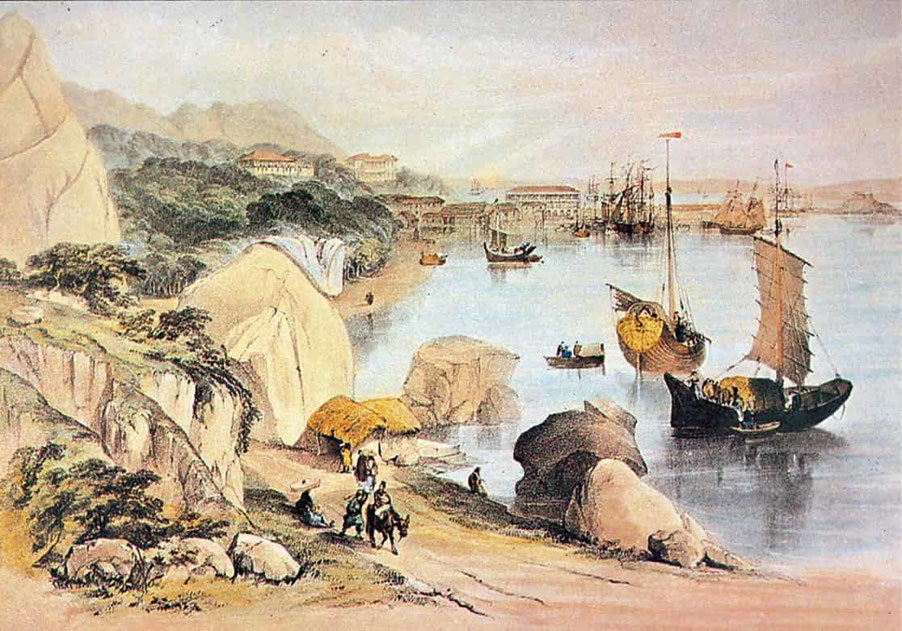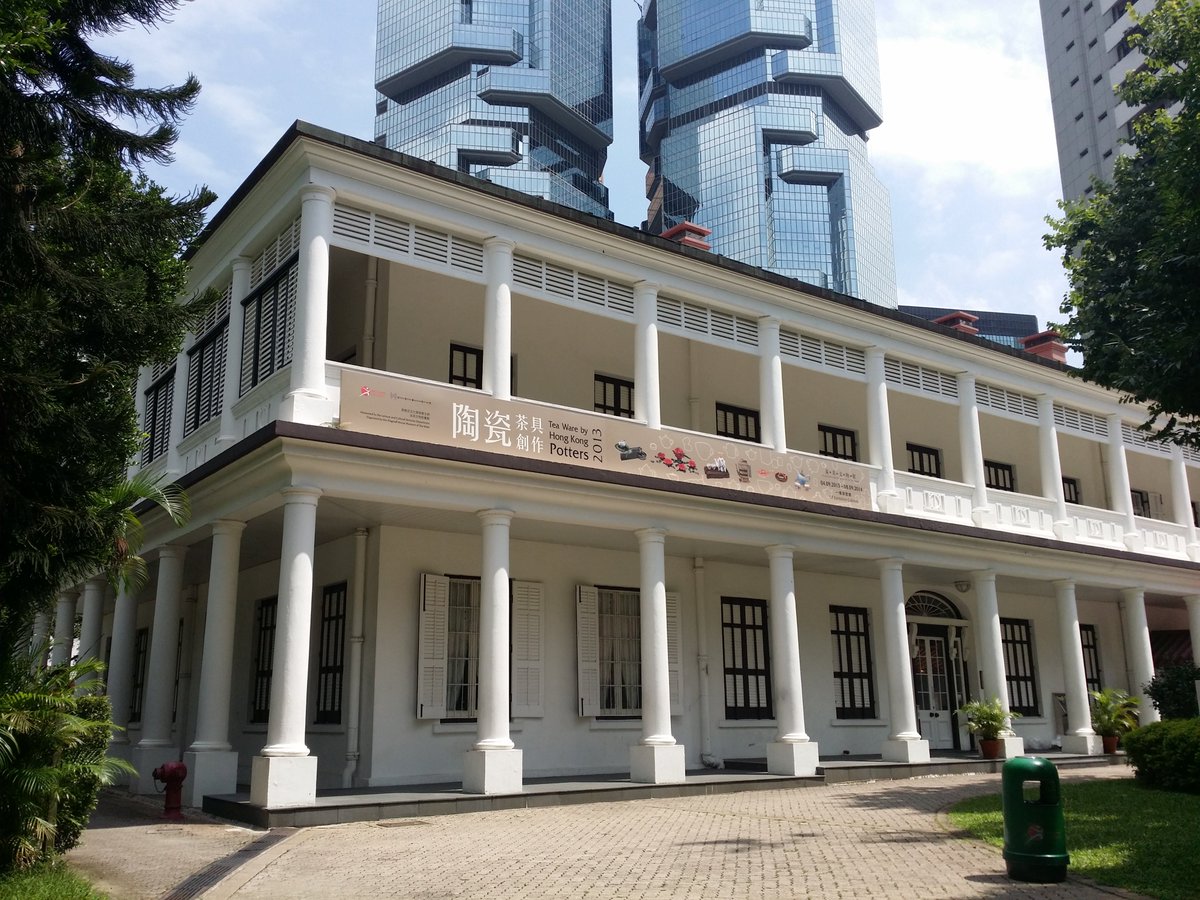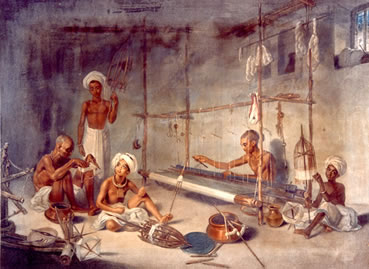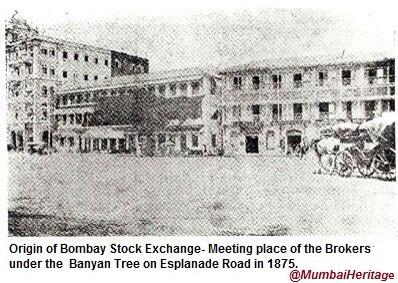My version: Centuries back, the present day of the region of Assam was visited by Buddhist monks who used to the trek to and from China and India. One such Chinese monk brought back the seeds from a new-to-him plant, the tea bush.
Image HT @PratikshaDake
